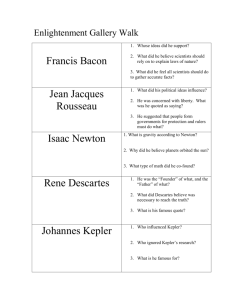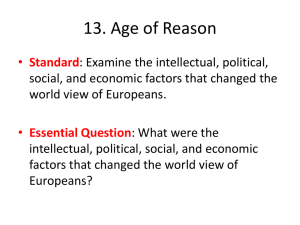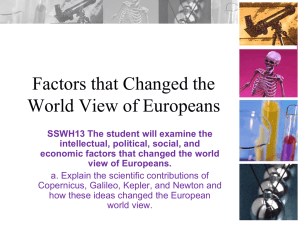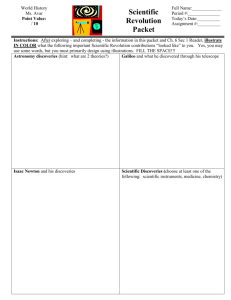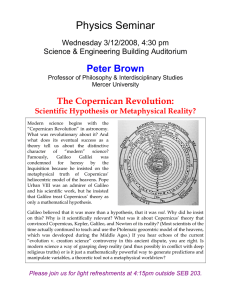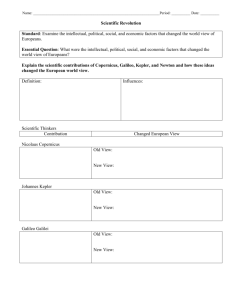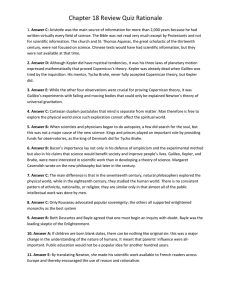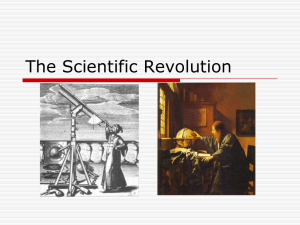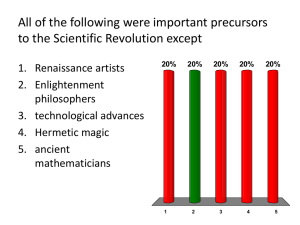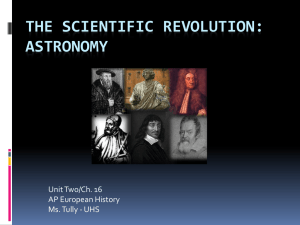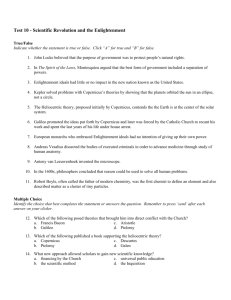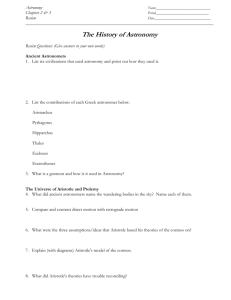Chapter_7_8_Quiz - AP European History Room 346
advertisement
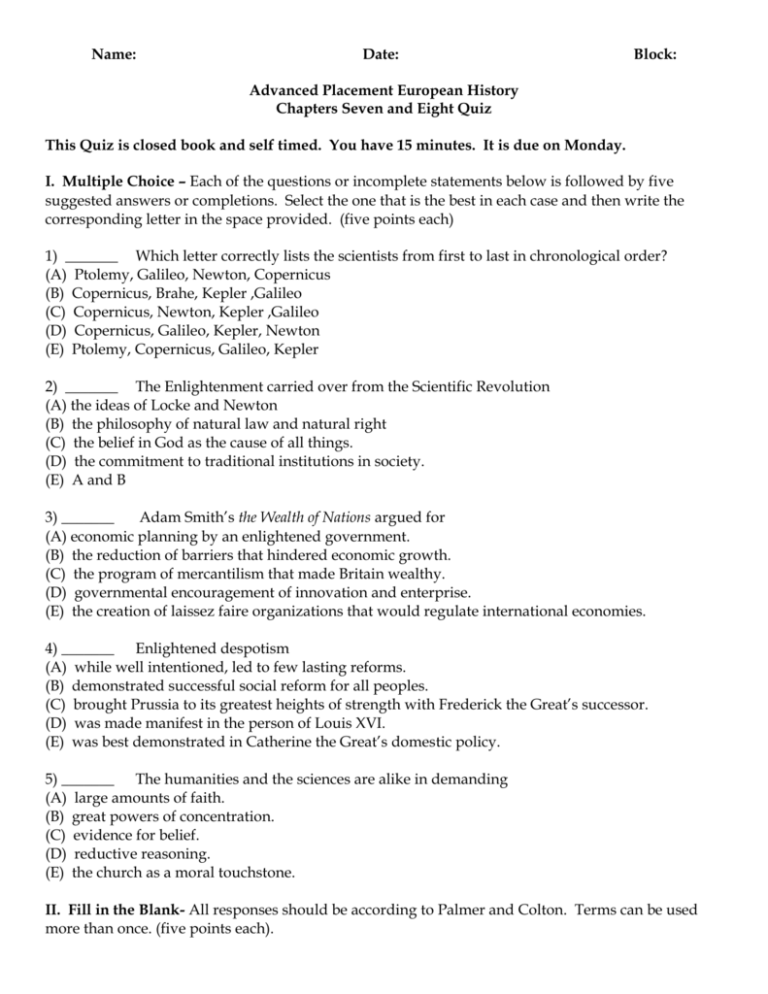
Name: Date: Block: Advanced Placement European History Chapters Seven and Eight Quiz This Quiz is closed book and self timed. You have 15 minutes. It is due on Monday. I. Multiple Choice – Each of the questions or incomplete statements below is followed by five suggested answers or completions. Select the one that is the best in each case and then write the corresponding letter in the space provided. (five points each) 1) _______ Which letter correctly lists the scientists from first to last in chronological order? (A) Ptolemy, Galileo, Newton, Copernicus (B) Copernicus, Brahe, Kepler ,Galileo (C) Copernicus, Newton, Kepler ,Galileo (D) Copernicus, Galileo, Kepler, Newton (E) Ptolemy, Copernicus, Galileo, Kepler 2) _______ The Enlightenment carried over from the Scientific Revolution (A) the ideas of Locke and Newton (B) the philosophy of natural law and natural right (C) the belief in God as the cause of all things. (D) the commitment to traditional institutions in society. (E) A and B 3) _______ Adam Smith’s the Wealth of Nations argued for (A) economic planning by an enlightened government. (B) the reduction of barriers that hindered economic growth. (C) the program of mercantilism that made Britain wealthy. (D) governmental encouragement of innovation and enterprise. (E) the creation of laissez faire organizations that would regulate international economies. 4) _______ Enlightened despotism (A) while well intentioned, led to few lasting reforms. (B) demonstrated successful social reform for all peoples. (C) brought Prussia to its greatest heights of strength with Frederick the Great’s successor. (D) was made manifest in the person of Louis XVI. (E) was best demonstrated in Catherine the Great’s domestic policy. 5) _______ The humanities and the sciences are alike in demanding (A) large amounts of faith. (B) great powers of concentration. (C) evidence for belief. (D) reductive reasoning. (E) the church as a moral touchstone. II. Fill in the Blank- All responses should be according to Palmer and Colton. Terms can be used more than once. (five points each). 1) This author of Two Treatises of Government argued that man possessed certain natural rights. 2) He believed that in a “state of nature” man was forever locked in a war of all against all. 3) This Jewish lens grinder held that God had no existence apart from the world, that everything was itself an aspect of God. 4) This enlightened despot believed in the “greatest good for the greatest number” and abolished serfdom in their country. 5) His war cry, “crush the infamous thing!”, meant that people should do away with bigotry, intolerance and superstition. 6) This French philosophe believed in liberty for the enlightened and supported a strong state. 7) This Englishman took to “itinerant” preaching across Great Britain. While he attempted to stay within the Church of England, he influenced the start of Methodist societies. 8) This was the symbol used to represent God by people who held a scientific view in the 18c. 9) This Flemish scientist moved beyond Galen in his description of human bodies by dissecting human cadavers and describing them as he found them. 10) He argued that governmental variation depended on the weather and that power in government was best when divided. 11) His Discourse on Method advanced the principle of systematic doubt. 12) This ruler started out with enlightened ideas and ended up persecuting the serfs as much as slaves were subjugated in the Americas. 13) This leader of the British reform movement was expelled from the House of Commons and while he was elected three times, the House refused to seat him. 14) He stressed the importance of feeling and his novels celebrated the common man. Marie Antoinette enjoyed reading his books in her garden. 15) He critiqued “delicate learning” and praised knowledge that could be put to work. While he became a leading philosopher of empiricism, he was bad at math. III. Extra Credit – Fill in the blank. (two points each) 1) He wrote a Defense of the Seven Sacraments and was conferred by the pope the title “Defender of the Faith.” 2) Austria : Habsburgs : Prussia : 3) Begun by his predecessors, Peter the Great required landowning and serf-owning aristocrats to perform this, which entailed serving in the military or civil administration. I have not given or received aid.
